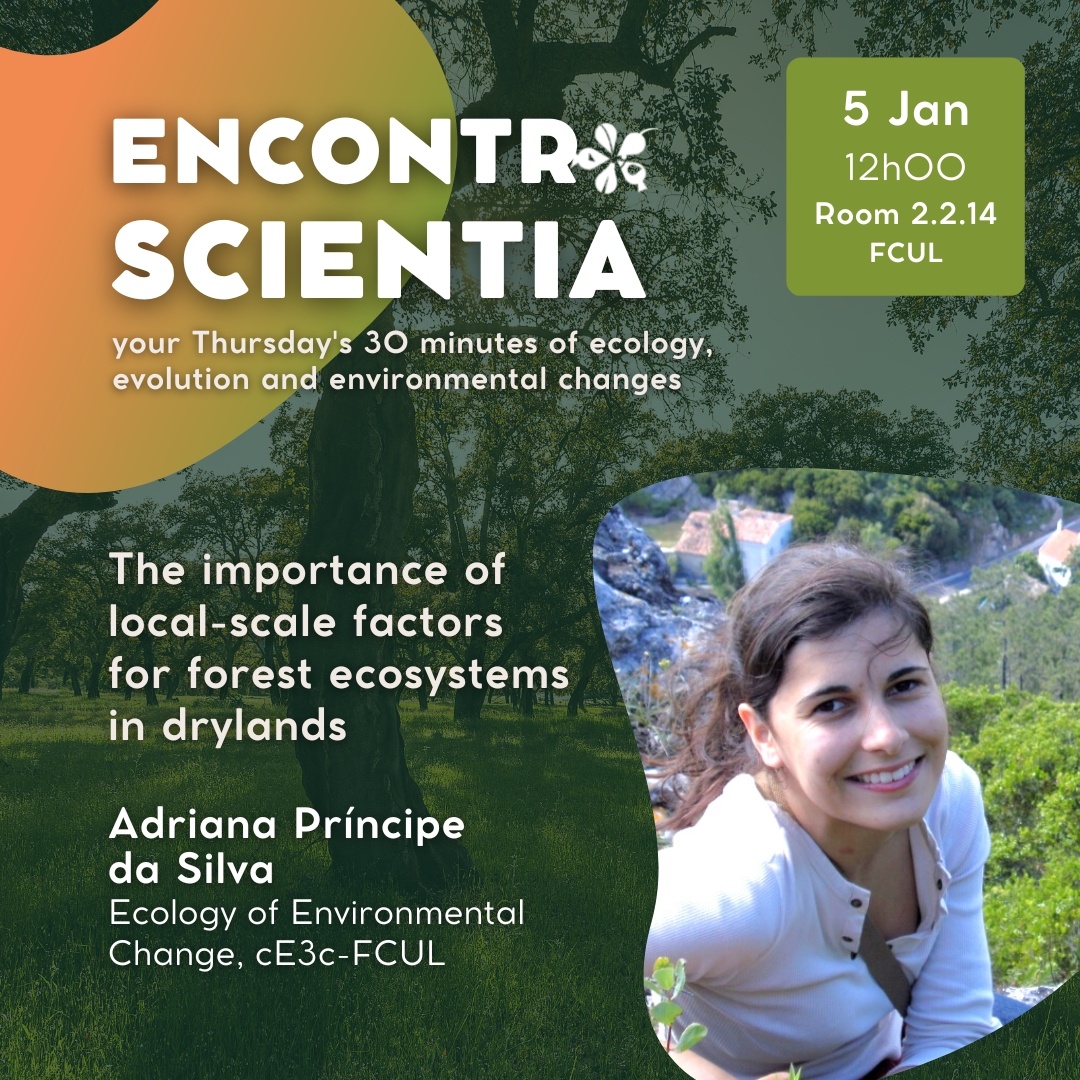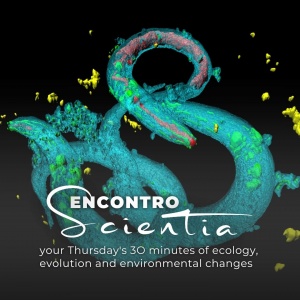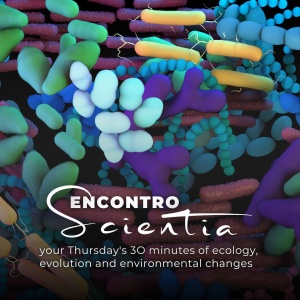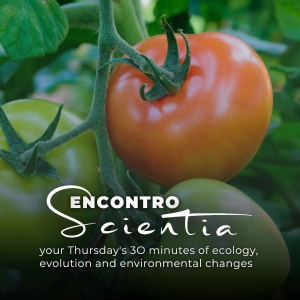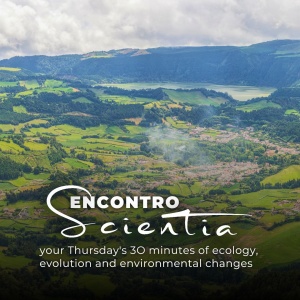Encontro Scientia with Adriana Príncipe da Silva (Ecology of Environmental Change - eChanges)
5 January 2023 . 12h00
Room 2.2.14, Faculty of Sciences of the University of Lisbon
Forests in drylands are crucial to maintain essential ecosystem services. Yet, they are being degraded by multiple pressures, mainly climate change and land-use intensification, leading to an increase in tree mortality and decreasing natural regeneration. Therefore, it is critical to understand the underlying environmental factors that are limiting tree cover and distribution in dryland forests. Here, we assess the relative contribution of broad-scale drivers (e.g. climate) and of local-scale factors, mainly microclimatic conditions, to explain forest performance in different stages of tree development: productivity, mortality and natural regeneration in oak woodlands in Mediterranean drylands. Our approach was based on field data, remote sensing information and multivariate statistics, using broad- (>500 m) and local-scale (<500 m) factors as main predictors with high spatial resolution. We show that: i) the interaction between local-scale and broad-scale factors is crucial to explain tree productivity; ii) the most important local-scale factors limiting tree productivity are soil water availability and Potential Solar Radiation; iii) tree mortality increases as soil water availability decreases and with the distance to groundwater; iv) very dry microclimatic conditions limit tree natural regeneration in the long term (> 60 years), particularly in the tree establishment phase. These results highlight the importance of including variables with a high spatial resolution to model and map the potential of tree productivity, mortality and regeneration over space and time. Modelling dryland forests' response using local-scale factors improves the precision of reforestation and restoration plans, increasing management efficiency and the long-term sustainability of these forests.
Join us IN PERSON (FCUL Room 2.2.14) or, if you are located in Azores or at MUHNAC, by Zoom (NEW LINK: https://videoconf-colibri.zoom.us/j/91777573451?pwd=WnFvK3gzOW1vU2x6V0txQTdXUjd5dz09; Password: 928454)!
We have been experiencing some technical issues regarding the authentication/connection to the Zoom platform through FCCN. For that, we apologise for any difficulties during the transmission.
Tags: eChanges forests montado drylands climate change reforestation

